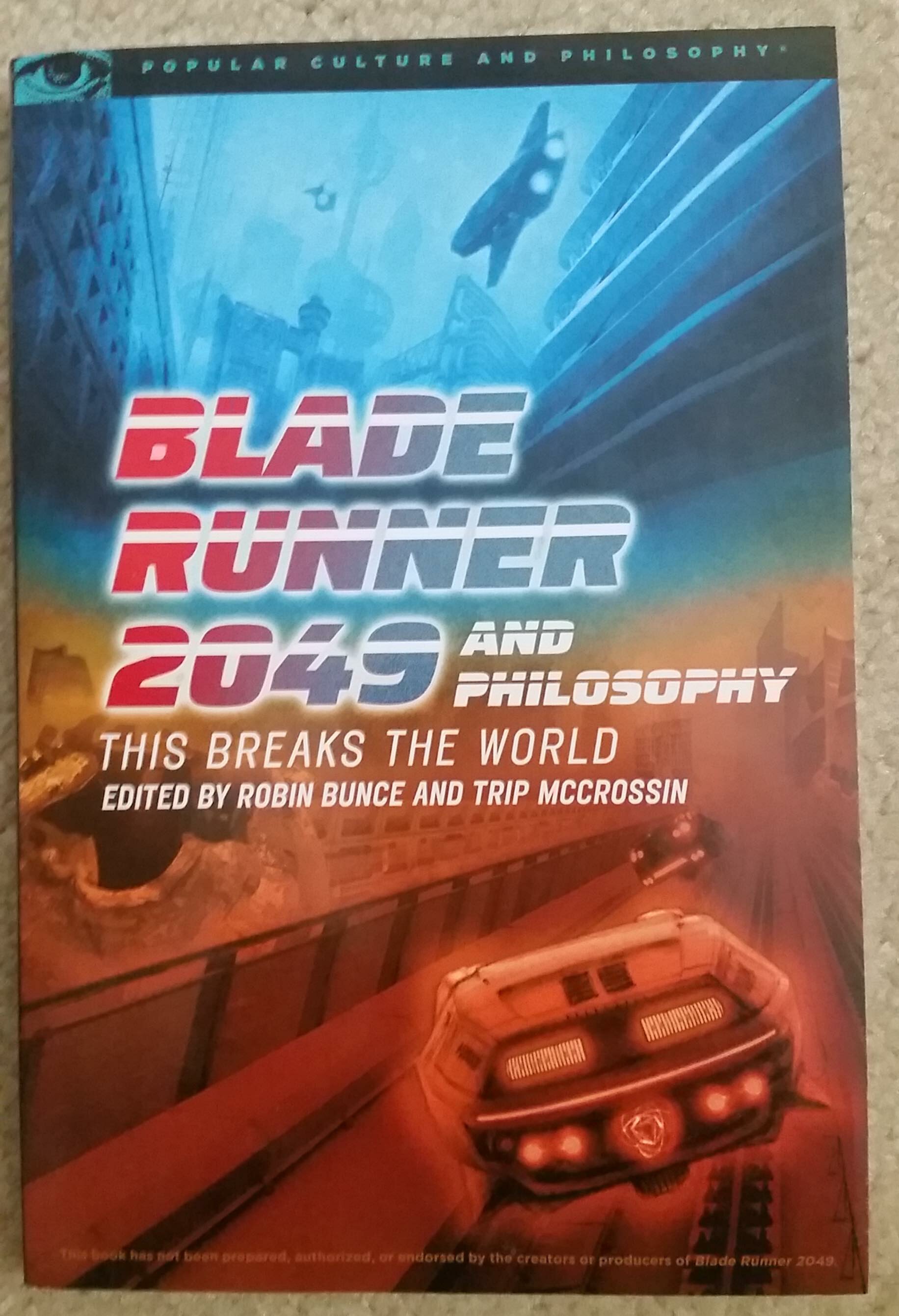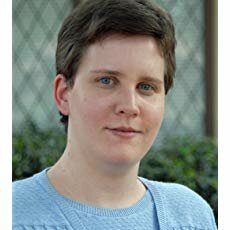The “And Philosophy” series of books by Open Court Press generally involves two dozen philosophers giving their take on science fiction books, TV shows and movies. I’ve reviewed several of their more recent books like “The Handmaid’s Tale and Philosophy” and “Bladerunner 2049 and Philosophy”.
The “Bladerunner” is a deep franchise by design. The first movie makes you ask yourself what makes you human while encapsulating a very Biblical narrative of a fallen angel rebelling (and killing) his creator. Roy Batty kills not only his creator but the holy trinity of sorts, the creator of eyes/wisdom and the son of his creator, the rather innocent Jesus-analog. “Bladerunner 2049” begins with the birth of a child, the revelation of which threatens to overturn the moral order and liberate an oppressed people. At the same time, a corporate King seeks to claim the child (and likely dissect him/her) while his right hand angel kills, maims, and deceives to follow her false God’s will. Niander Wallace’s god-complex is his only well-defined, personal characteristic aside from being blind. He just wants to possess and likely corrupt the child to build an army to storm heaven. He’s compared to the Demiurge or false material world god in one of the “Blade Runner 2049 and Philosophy” chapters.
Stoicism, Gnosticism, Kierkegaard, Kant (repeatedly), feminist thought, social justice are all used as lenses by which to analyze the “Bladerunner” movies and, in several cases, the shorts that fill in the thirty year gap in the story line. I had been unaware of these shorts, though I’ve seen both Bladerunner movies multiple times.
Each contributor picks a topic such as whether or not Joi is a human/person/independent moral agent, whether K is human or post-human, and how our relationships define us as people/human. Are K and Joi capable of an authentic relationships or made “human” by their relationship and sacrifices for each other? The moral and philosophical questions posed by the K-Joi-Mariette sex scene are brought up repeatedly, while at least two feminist authors bring up concerns about how such artificial constructions de-legitimize women or serve the patriarchy. I understand the concerns though have a different philosophical basis for my essay “The Ethics of Sexbots”. Other essays ask us what is real, how we may mature morally, and what it means to rise above one’s programing. I ask these questions myself in my short stories. It is the very theme of my anthology “Humanity’s Edge”.
The book’s quality declines in the final section. The first three quarters contain one apologist essay for Communism. In the final quarter, you get one author who I doubt has a real understanding of libertarian philosophy arguing the corporatist slavery in the Bladerunner universe is a libertarian paradise (a dig at capitalism AND libertarians). In the final quarter, we get multiple essays that tear down capitalism on a moral basis while ignoring the good it has done in the world. Un-ironically, they are using the fictional dystopia as their justification for doing so.
Note: I received this book from the publisher in exchange for an honest review.



Comments